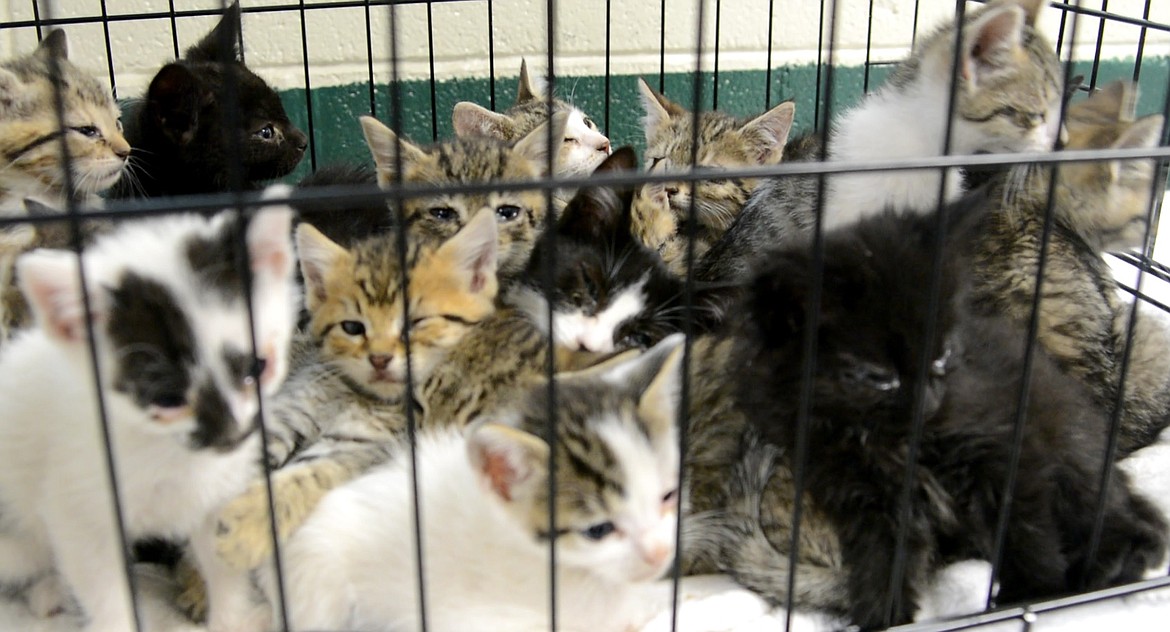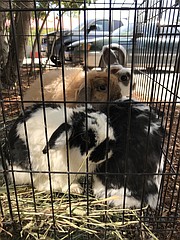COMPLICIT with CRUELTY
Idaho rated worst in reporting incidents of abuse to animals
When it comes to reporting animal abuse, Gem Staters tend to shut up and look the other way.
That’s the assessment of a study by the Animal Welfare Institute, which recently ranked Idaho worst in the nation based on FBI and other statistics.
"I think the biggest problem in Idaho is that the public doesn’t report actual issues because a lot of it is happening out of the public eye," said Post Falls Animal Safety Officer Vivian Reynolds. "Nobody speaks out when they see this horrible stuff."
Many states are off to a slow start reporting animal cruelty incidents to the FBI’s national crime database. In 2015, in recognition of the importance of animal cruelty crimes and their effect on animal welfare as well as public safety, the FBI added animal cruelty crime incidents to the National Incident-Based Reporting System (NIBRS). Voluntary collection of data on animal cruelty crimes began the following year among local police agencies.
AWI’s Animal Cruelty Reporting Scorecard lists the top 20 states according to the apparent robustness of their efforts to track animal cruelty crimes. In 2017 and 2018 — the two most recent years for which statistics are available — Delaware, Colorado and New Hampshire led the pack, while Massachusetts, West Virginia and Idaho were at the bottom.
Idaho, which ranked dead last on the scorecard, reported only seven incidents in 2018, or 0.4 per 100,000 population. Idaho also ranked among the worst states for animal protection laws — 45th — in a 2019 ranking by the Animal Legal Defense Fund.
Under NIBRS, an animal cruelty incident is any report of a suspected offense, either from a citizen or initiated by a law enforcement officer, animal control officer or humane law enforcement official. To be “counted,” an incident does not have to result in an investigation or an arrest.
"My initial thought is people in Idaho don't pay a lot of attention to their neighbors," Reynolds said. "They don’t call in their neighbors when they are suspicious of anything going on with their animals."
Not all states are in the NIBRS system. Some states participating in NIBRS are not yet collecting animal cruelty crime incidents, and a few states reported fewer than six animal cruelty incidents in 2018 — an indication that adoption of the new policy is still in its early stages. Those states are excluded from AWI’s ranking. Post Falls and Coeur d'Alene both use the NIBRS system.
Coeur d'Alene Animal Control Animal Safety Officer Jon Beamesderfer said Coeur d'Alene received more than 3,000 animal-related calls in 2019, ranging from abuse and neglect to noisy or vicious animals.
"Dealing with the public and social media, a lot of things get reported," Beamesderfer said. "The more information, the better. If someone sees it, report it and then it can be taken care of.
"If we have a system like this to report through, it helps people in the long run pass laws or whatever it may be because they have something they can go back on or refer to," he said. "They have concrete evidence."
Punishment for cruelty to animals in Idaho ranges from $100 to $5,000 fines and up to six months incarceration for first offenders. Jail and fees increase with offenses, but everything is decided on a case-by-case basis and arrests aren't always made.
"The only thing we can do is report it to Animal Control and they take it from there. Very hard to arrest someone if there is no proof," said Debbie Jeffrey, executive director of Kootenai Humane Society, which rescues a number of abandoned and abused animals each year.
"No different from children or domestic violence — most are afraid to talk because the abuse only gets worse," Jeffrey said. "If one does research, most abusers start with animals and then move to kids/women, which leads to death in some cases. It is documented that serial killers follow this pattern."
Beamesderfer said calls to Coeur d'Alene Animal Control spike in the summer when people see dogs in hot cars with windows up or animals are left in sweltering conditions with no water.
"In the wintertime it's the opposite; dogs are outside freezing," he said, adding that calls slow way down in winter because most animals are inside where they can't be seen.
Kootenai Humane Society warns its new volunteers to be ready for what they will see during their time at the shelter, said development director Vicky Nelson.
"It's heart-wrenching, and not everyone can cope with the devastating reality," she said. "The staff can only guess at what these animals have been through. They ask themselves: Why is this dog so afraid of men? Where did this deep burn mark come from on the hind end of this cat? How could someone neglect a small dog for so long that his fur has matted his hind legs together? And who would discard defenseless animals in the middle of the night to fend for themselves for hours in the cold?"
Nelson said the shelter posts signs regarding abandonment and reports on the abuse and legalities people face who put animals in harm's way.
"But, it still continues," she said. "It has become so commonplace at the shelter that the only response is to get them in the door, get them well, and pray they recuperate, physically and mentally."
"Recently it was reported that someone found five baby kittens in the trash can in a plastic bag and only two made it," Jeffrey added. "As kitten season approaches, people bring litters in that have been dumped along the side of the road, in trash cans and left in fields, hiking trails, etc. We advertise all of time that they can bring them to us for free, and no questions asked."
April is Prevention of Cruelty to Animals Month. Reynolds advised that anyone who suspects animal neglect, abuse or cruelty should call animal control or the Kootenai County Sheriff's Office to investigate. A few telltale signs are animals losing hair, not being properly groomed and the overpowering smell of animal waste that is not being regularly cleaned, among other indications that something isn't right.
"Even if you're on the line and think it might not be anything, I would prefer to check for myself and make absolutely sure," Reynolds said. "I always tell people when they report something and it's completely wrong and the animal is fine, never hesitate to call me."
That one time someone hesitates to call, she said, could be the one time that animal really needs help.
Coeur d'Alene Animal Control: 208-769-2320
Post Falls Animal Safety: 208-773-3517
Kootenai County Sheriff's Office Animal Control: 208-446-1300
Info: www.awionline.org/content/animal-cruelty-reporting-scorecard







